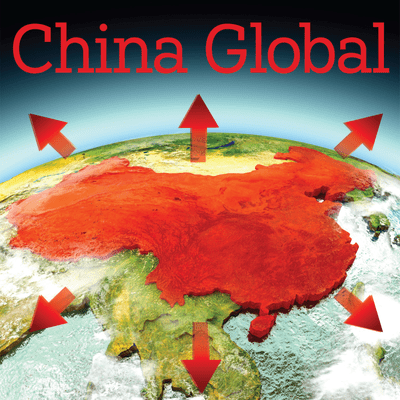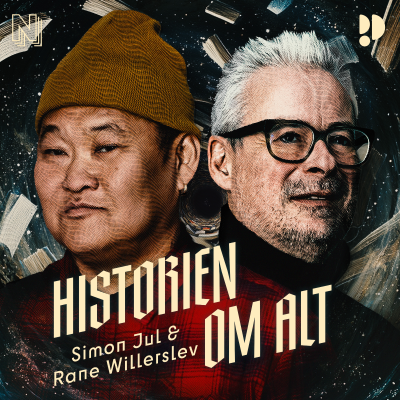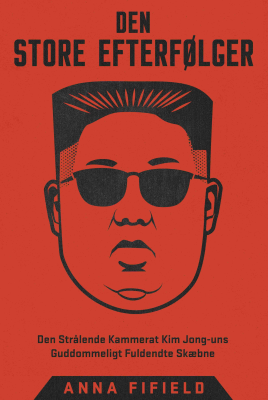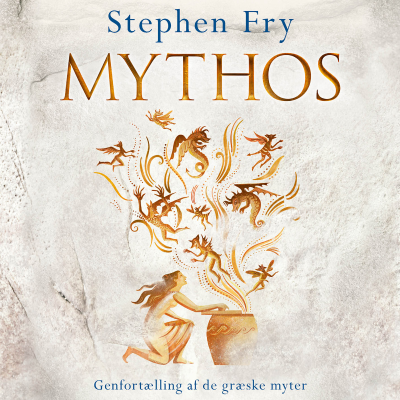
China Global
Podcast af The German Marshall Fund
Begrænset tilbud
1 måned kun 9 kr.
Derefter 99 kr. / månedIngen binding.

Mere end 1 million lyttere
Du vil elske Podimo, og du er ikke alene
Rated 4.7 in the App Store
Læs mere China Global
China’s rise has captivated and vexed the international community. From defense, technology, and the environment, to trade, academia, and human rights, much of what Beijing does now reverberates across the map. China Global is a new podcast from the German Marshall Fund that decodes Beijing’s global ambitions as they unfold. Every other week, host Bonnie Glaser will be joined by a different international expert for an illuminating discussion on a different aspect of China’s foreign policy, the worldview that drives its actions, the tactics it’s using to achieve its goals—and what that means for the rest of the world.
Alle episoder
108 episoderThe United States and China wrapped up the third round of high-level trade negotiations earlier this week. American and Chinese negotiators met in Stockholm on July 28 and 29. US Treasury Secretary Scott Bessent described the talks as constructive and wide ranging. He acknowledged that an extension of the 90-day tariff pause was discussed but said that the final decision was up to President Trump. As of today – August 1 – Trump has remained mum. The Chinese side’s readout was devoid of details, although China’s vice minister of commerce said that both countries would continue to push for an extension of the reciprocal tariffs and Chinese countermeasures. How should we assess the dynamics in the trade talks, including the balance of leverage between Washington and Beijing? And how might the trade negotiations shape the future of the US-China relationship? To discuss these questions, we are joined by Dr. Scott Kennedy. Scott is senior adviser and trustee chair in Chinese Business and Economics at the Center for Strategic and International Studies. Timestamps [00:00] Start [02:06] Lessons Learned from Trump’s First Administration [05:20] Chinese Outlook on Future Economic Policy [09:28] Who’s Winning the Trade War? [14:30] China’s Reactions to Transshipment Provisions [18:18] Bessent's Rebalancing Plans [24:14] Challenges to Chinese Investment in the US [29:15] China's Trade Deal Goals
South Korea and China have a complex relationship characterized by economic interdependence, strategic competition, and regional security concerns. Navigating this delicate balance has been a defining challenge for every South Korean president. Newly elected President Lee Jae Myung has assumed power at a time of increasing US-China strategic competition as well as uncertain global supply chains and growing threat from North Korea. Could this new administration mark a shift in Seoul’s approach to Beijing? Or will President Lee maintain strategies similar to that of President Yoon? To discuss ROK-China relations, and President Lee’s approach to this intricate issue, we are joined on the podcast today by Dr. Ramon Pacheco-Pardo. He is a professor of international relations at King’s College London and the KF-VUB Korea Chair at the Center for Security, Diplomacy and Strategy in the Brussels School of Governance. He is also an adjunct fellow with the Korea Chair at the Center for Strategic and International Studies, and the author of several books on the domestic affairs and foreign policy of South and North Korea. Timestamps [00:00] Start [01:44] “[P]ragmatic diplomacy centered on national interests” [05:06] State of Play for Sino-South Korean Relations [09:56] Balancing Between the United States and China [14:47] China Taking Advantage of US-ROK Frictions [19:03] Economic Interdependence as a Leverage [25:39] Xi Jinping Attending APEC South Korea 2025 [31:11] American Pressure on Allies to Protect Taiwan
On June 13th, Israel launched attacks on several military and nuclear facilities in Iran, marking the beginning of a 12-day war between the two countries. The United States followed with targeted strikes on Iranian nuclear sites to prevent Iran from becoming a nuclear power and posing a threat to regional and global stability. China’s involvement in the conflict was limited to condemning the Israeli and US use of military force and calling for de-escalation. Beijing offered only rhetorical support for Tehran. To discuss what the Israel-Iran war reveals about China’s relationship with Iran, its evolving strategy in the Middle East, and the broader implications for US-China competition, we are joined by Yun Sun on the podcast today. Yun is a Senior Fellow, co-Director of the East Asia Program and Director of the China Program at the Stimson Center. Her recent piece in The Wire China entitled “How China Sees Iran’s Future” offers provides a nuanced take on Beijing’s calculus during and after the war. Timestamps [00:00] Start [01:34] China’s Diplomatic Strategy Toward the Middle East [05:00] A Limited Chinese Response and China’s Regional Role [08:19] Chinese Perceptions of Iran’s External Strategic Blunders [15:00] Trickling Chinese Investment into Iran [20:10] Chinese Concerns About a Nuclearized Iran [25:09] Implications of the Israel-Iran War for China’s Energy Security [32:04] Trump’s Response Shaping Chinese Views of the United States
In February 2022, Russia launched a full-scale invasion of Ukraine. China has never condemned the invasion, and its government and media have carefully avoided using term “Ukraine War,” opting instead to refer to the war as the “Ukraine crisis,” the “Russia-Ukraine conflict,” or the “special military operation,” a term that echoes Moscow’s language. Beijing’s approach to the Ukraine War has included support for Russia, a commitment China’s own principles, including respecting Ukraine’s sovereignty and territorial integrity, and a professed desire for peace. This episode’s discussion will focus on China’s evolving posture toward the war and China’s relationship with Ukraine. Joining the podcast this episode is Dr. Vita Golod, who is a Junior Research Fellow at the A. Yu Krymskyi Institute of Oriental Studies, National Academy Sciences of Ukraine, and a Visiting Adjunct Instructor at the University of North Carolina at Chapel Hill.She is also the co-founder of the Ukrainian Platform for Contemporary China and a board member of the Ukrainian Association of Sinologists. Timestamps [00:00] Start [01:35] China’s Relationship with Ukraine Prior to Russia’s Invasion [05:06] President Zelenskyy’s Accusations Against China [08:20] Contemporary Ukrainian Perceptions of Relations with China [12:14] Ukrainian Perceptions of Sino-Russian Relations [16:25] China as a Mediator and Peacemaker [19:06] China’s Interests in the Outcome of the Russo-Ukrainian War [21:21] What concrete steps could China take to facilitate peace? [23:14] China’s Role in the Post-War Reconstruction of Ukraine [28:08] The Future of Sino-Ukrainian Relations
On April 22, 2025, gunmen in the town of Pahalgam, located in the disputed region of Kashmir, killed 26 people—mostly Indian tourists. A four-day military clash between India and Pakistan ensued, bringing both countries to the brink of a full-blown war, before a ceasefire was reached on May 10, 2025. During the India-Pakistan clashes, Beijing urged both sides to deescalate and called for a “political settlement through peaceful means.” But China did not play a neutral role in the conflict. Consistent with Chinese Foreign Minister Wang Yi’s purported statement to his Pakistani counterpart that “China fully understands Pakistan’s legitimate security concerns and supports Pakistan in safeguarding its sovereignty and security interests,” China reportedly provided intelligence, satellite equipment, and other forms of support to Pakistan before and during the clashes. To analyze China’s role in the conflict, host Bonnie Glaser is joined by Andrew Small. Andrew is a senior transatlantic fellow with GMF’s Indo-Pacific program, and author of two books on China, including “The China-Pakistan Axis: Asia’s New Geopolitics,” which is now ten years old, but remains an insightful and relevant study. Timestamps [00:00] Start [01:46] China’s Diplomatic Response to the India-Pakistan Clashes [05:58] Beijing’s Offer of Playing a “Constructive Role” [10:56] A Testing Ground for Chinese Weaponry and Equipment [14:03] China’s Cautious Approach to Sino-Indian Relations [18:10] Military Support and the Sino-Pakistan Relationship [23:44] Implications for Chinese Arms Exports [26:27] Indian and Pakistani Assessments of Chinese Involvement [30:06] Influence of US-China Rivalry on India-Pakistan Relations

Rated 4.7 in the App Store
Begrænset tilbud
1 måned kun 9 kr.
Derefter 99 kr. / månedIngen binding.
Eksklusive podcasts
Uden reklamer
Gratis podcasts
Lydbøger
20 timer / måned

































